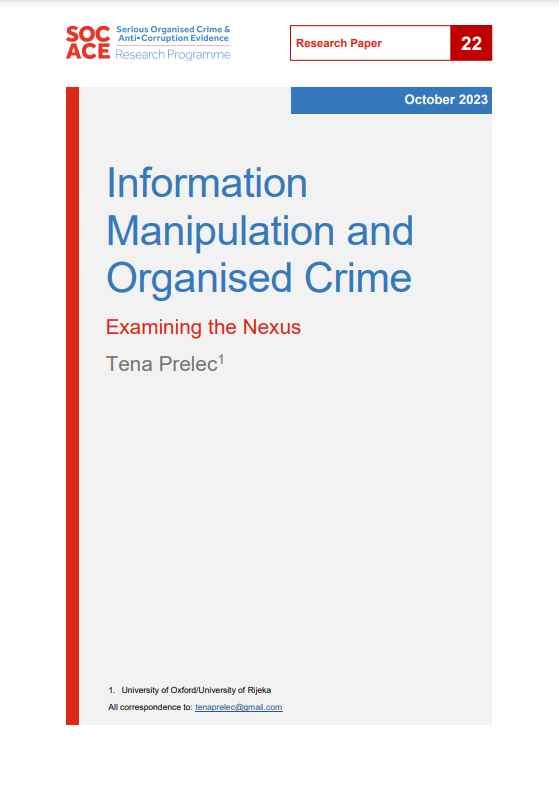By Tena Prelec
The research paper that this briefing note summarises introduces a new framework for assessing the relationship between information manipulation and organised crime. Through applied real-world case studies from Russia, Ukraine, Moldova (Transnistria), and Albania, the framework reveals diverse patterns in these relationships, and the varying intensity of the information manipulation employed at a granular level. An emerging hypothesis emerging from the research suggests that authoritarian states may wield greater freedom in misusing information when they have intermediate – rather than high – levels of integration with the organised crime groups (OCG’s) executing disinformation campaigns on their behalf. The paper also identifies several areas for further research, including public receptivity to information manipulation, the mercurial nature of ties between elite actors and the use of information manipulation by elites, to create confusion amongst the public rather than to change their minds.
SOC ACE Research Paper. Birmingham, UK: University of Birmingham. 2024. 7p.






